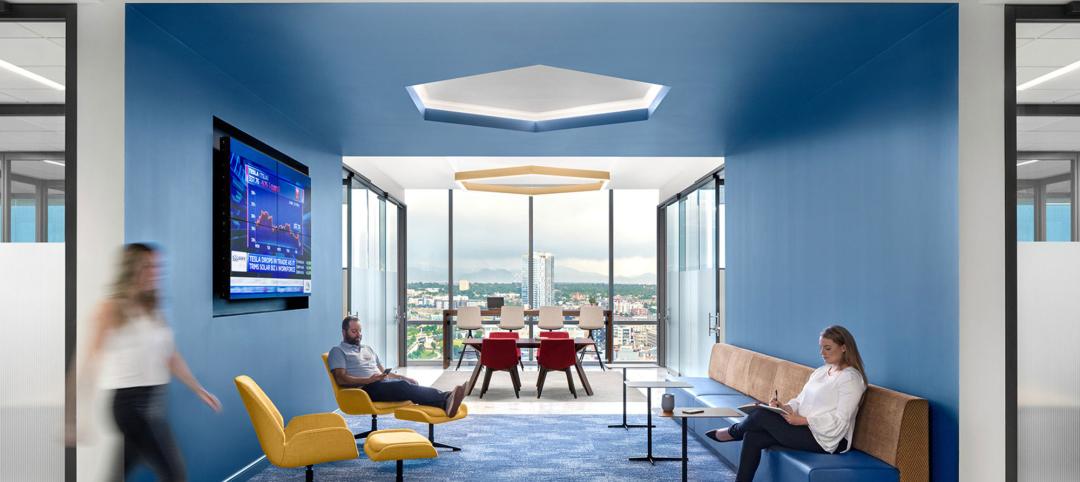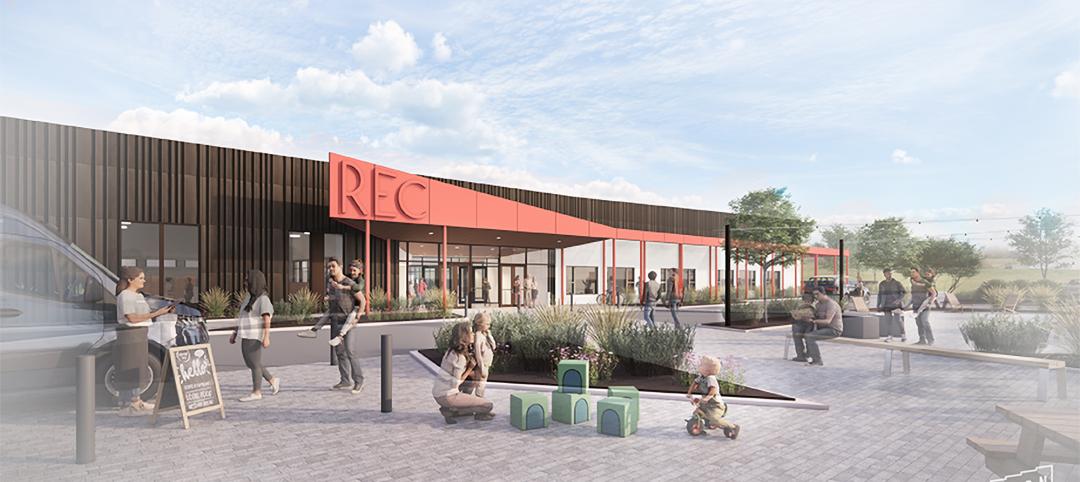Fulton East is a $26 million, 12-story office tower in Chicago’s West Loop. This was one of the first projects that two architectural firms, Lamar Johnson Collaborative (LJC) and BatesForum, worked on jointly.
This week, the firms announced that they had combined to create one business entity with 240-plus professionals and five offices. But the firms had a previous connection in that St. Louis-based BatesForum was 50%-owned by the contracting company Clayco after Clayco merged Bates with its Forum Studio subsidiary in March 2018; and Chicago-based LJC is a Clayco subsidiary, which the contractor acquired in October 2018.
“The future of design is integrated,” says Clayco CEO and founder Bob Clark. “Our integrated delivery model will set a new standard by completely disrupting the inefficiency of the traditional paradigm of design-bid-build.”
Lamar Johnson, CEO of his eponymous firm, adds that this combination is a response to a design-bid-build construction model “that needs to change.” Johnson believes that the combined firm will be better able to draw upon Clayco’s “deep bench of resources and industry leading technology.”
Among the expanded firm’s capabilities are its Technical Assurance Group (TAG), which consults with project teams to apply lessons from the built environment to projects still on the drawing board; and the Virtual Design and Construction (VDC) team, which provides BIM support for the use of integrated models and provides collaboration space for real-time decision-making by owners.
The combined firm exceeds 200 active architecture and design projects in 24 states. Together with Clayco, the overall construction value of active integrated delivery projects exceeds $4 billion. Its client list includes Farpoint Development, Pfizer, Mercy, Brookfield Properties, Blackstone Realty, Levy Restaurants, Lennar Multifamily Communities, Sterling Bay, and The John Buck Company.
The larger LJC will also continue the tradition of civic and community engagement practiced by the firm and Clayco. In the past, it has lent financial support to such organizations as the United Way and Cristo Rey High School.
Related Stories
Designers | Sep 5, 2023
Optimizing interior design for human health
Page Southerland Page demonstrates how interior design influences our mood, mental health, and physical comfort.
K-12 Schools | Sep 5, 2023
CHPS launches program to develop best practices for K-12 school modernizations
The non-profit Collaborative for High Performance Schools (CHPS) recently launched an effort to develop industry-backed best practices for school modernization projects. The Minor Renovations Program aims to fill a void of guiding criteria for school districts to use to ensure improvements meet a high-performance threshold.
Market Data | Sep 5, 2023
Nonresidential construction spending increased 0.1% in July 2023
National nonresidential construction spending grew 0.1% in July, according to an Associated Builders and Contractors analysis of data published today by the U.S. Census Bureau. On a seasonally adjusted annualized basis, nonresidential spending totaled $1.08 trillion and is up 16.5% year over year.
Sports and Recreational Facilities | Sep 1, 2023
New Tennessee Titans stadium conceived to maximize types of events that can be hosted
The new Tennessee Titans stadium was conceived to maximize the number and type of events that the facility can host. In addition to serving as the home of the NFL’s Titans, the facility will be a venue for numerous other sporting, entertainment, and civic events. The 1.7-million sf, 60,000-seat, fully enclosed stadium will be built on the east side of the current stadium campus.
Mass Timber | Sep 1, 2023
Community-driven library project brings CLT to La Conner, Wash.
The project, designed by Seattle-based architecture firm BuildingWork, was conceived with the history and culture of the local Swinomish Indian Tribal Community in mind.
Office Buildings | Aug 31, 2023
About 11% of U.S. office buildings could be suitable for green office-to-residential conversions
A National Bureau of Economic Research working paper from researchers at New York University and Columbia Business School indicates that about 11% of U.S. office buildings may be suitable for conversion to green multifamily properties.
Adaptive Reuse | Aug 31, 2023
New York City creates team to accelerate office-to-residential conversions
New York City has a new Office Conversion Accelerator Team that provides a single point of contact within city government to help speed adaptive reuse projects. Projects that create 50 or more housing units from office buildings are eligible for this new program.
Codes and Standards | Aug 31, 2023
Community-led effort aims to prevent flooding in Chicago metro region
RainReady Calumet Corridor project favors solutions that use natural and low-impact projects such as rain gardens, bioswales, natural detention basins, green alleys, and permeable pavers, to reduce the risk of damaging floods.
Adaptive Reuse | Aug 31, 2023
Small town takes over big box
GBBN associate Claire Shafer, AIA, breaks down the firm's recreational adaptive reuse project for a small Indiana town.
Giants 400 | Aug 31, 2023
Top 35 Engineering Architecture Firms for 2023
Jacobs, AECOM, Alfa Tech, Burns & McDonnell, and Ramboll top the rankings of the nation's largest engineering architecture (EA) firms for nonresidential buildings and multifamily buildings work, as reported in Building Design+Construction's 2023 Giants 400 Report.

















